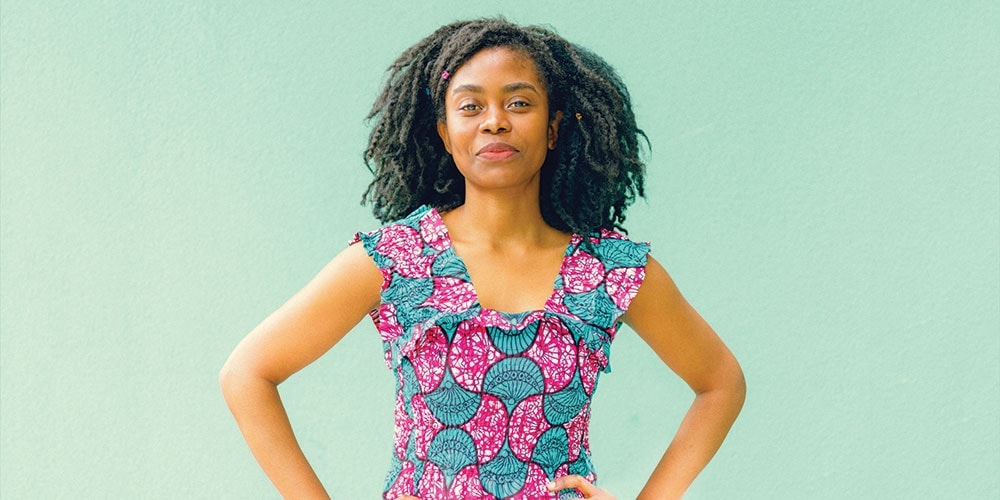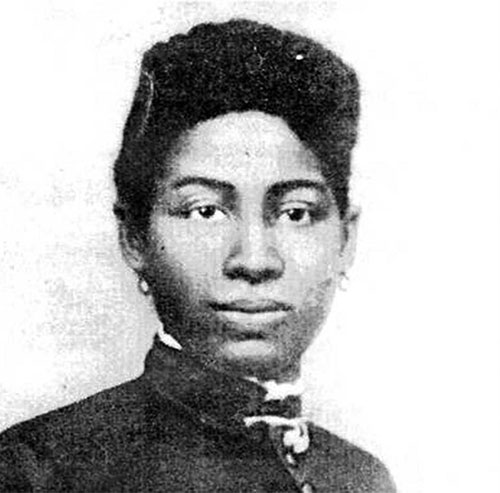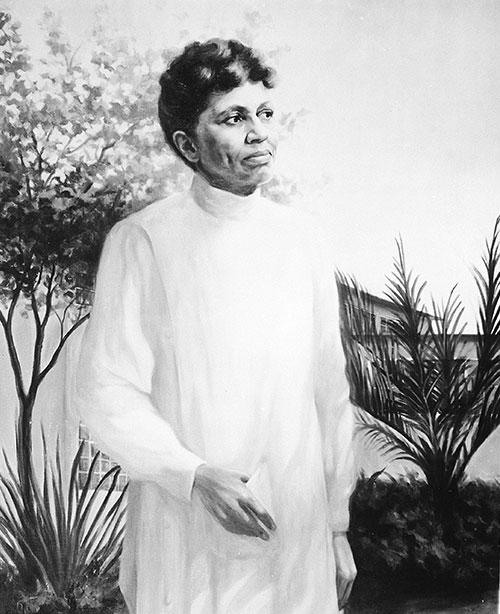
Being a Black woman in the United States is still a challenge and a complex set of burdens. Though we have always played a significant role in the development of America, we have often been ignored, insulted and invisible, shamed, stereotyped, and sidelined in spite of our achievements.
We have learned to find humor in heartache, to see beauty in the midst of desperation and horror, to be caregivers and breadwinners, to show strength and resilience, loyalty, love, and affection. Rising above centuries of oppression, long enduring society’s racist and sexist misconceptions and mistreatment, Black women today, while still caring for their families, are also prominent in major media organizations and other corporations, the military, and state and federal governments. Yet as a society and as a nation, it is still not clear how welcome and understood its Black women are in the United States.
Much is still unknown about the psychology of these 19 million people, seven percent of the U.S. population. Their experience in the workplace, the complexities of their romantic lives, the challenges they face as mothers and grandmothers, their spiritual and religious practices—these and so many other aspects of their lives remain largely unknown to the wider community. The result is continuing and significant discomfort on their part in relation to American society. In a June 2002 Gallup poll 61 percent of Black women said they were dissatisfied with “how Blacks are treated in society.” For Black men, the rate of dissatisfaction was lower—47 percent. In the same poll 48 percent of Black women, in contrast to 26 percent of White women, said they were dissatisfied with “how women are treated in society.”
Astonishing myths about Black women in America survive. For too many minds, Black success stories may be dismissed as outliers rather than typical of their Black woman neighbors and fellow citizens. Many hold, instead, to the elements of the insistent stereotype: if a Black woman is strong, she is not supposed to also be beautiful or feminine; if she works at menial tasks to feed and educate her children, she must not be intelligent; if her family unit is collapsing and her children failing, she is somehow to be seen as tough and unafraid; if she maintains her poise while being accosted with sexual harassment, she is probably oversexed or promiscuous; if she travels the globe, she is probably ferrying drugs. She may be as moral and intelligent as ever, but the signals she receives from the wider society too often tell her that she is not; nor can she be.
Distorted lenses are not unique to any ethnic group, but Black women are routinely defined by a specific set of reductive, inaccurate, and unfair caricatures. These survivals of old Hollywood movies and black-and-white television reruns have mutated into contemporary versions of their old selves. The emasculating Sapphire, for instance, resides in some episode you chance to stumble upon from NYPD Blue or Law and Order when police make their way into a poor Black neighborhood: Sapphire is harsh, loud, uncouth, usually making other characters seem more professional, more charming, more polished by contrast. Sapphire is a twisted take on conscientious striving, the Black women who assume multiple roles and myriad tasks upon the absence of their men lost to murder or prison, fulfilling the stereotype of strong and determined while ignoring the physical and emotional strain and the desperate need for balance in their lives. Their effort becomes a health struggle: soaring blood pressure; the consolation of food—and the wrong foods at that; depression; fantasizing about escaping; the untruth that they can and must persevere and endure against great odds without being negatively affected.1
Such stubborn societal myths, stereotypes based on race, gender, and social class are a continuing assault against Black women, invading their inner psyche, becoming permanently internalized, battering them from within even if they’re able, for a time, to wriggle free and live the truth. And the effort to cope with or qualify based on an external and unbalanced agenda makes it harder to trust oneself or to trust others who look or behave as you do. Confusing parameters on who you think you are, and what you believe you should or can become, often dictate what you expect, what seems real, and what seems possible.2
The challenges Black women face are sourced in both gender discrimination and ethnic prejudice. With regard to the latter, Black women live with fears similar to those of Black men in the area of law and order. They are concerned that they not appear too aggressive to the police; anxious that they not be dismissed again and again as welfare queens, sponging on the nation’s economy; anguished that when shopping they can so often be profiled as potential shoplifters; dismayed that fellow workers wonder what right they have to be in offices of status and social consequence.
They are profoundly frustrated that such academic, professional, or business success as they may achieve makes them appear more threatening than ever to White colleagues and simultaneously more uppity than appropriate among Black friends. Specific health problems ensue from or simply correlate with their life effort. Black women in the United States are three times more likely than White women to die during pregnancy and/or childbirth, and are disproportionately single mothers (67 percent, as opposed to 42 percent among Latinas and 25 percent among White women).
But they can still find a promise of future triumph. It is found in the biographies of their ancestral sisters who lived out in their own time all that their descendants of today most desire and dream of in their own hearts. Today’s Black woman has already seen her Black sisters emerge as champions on America’s sports teams, breaking Olympic records, sustaining the nation’s banner of victory. She has seen them assume prominent places in the past and in the culture of our times both at home and abroad, contributing in such areas as literature, journalism, music, dance, theater, and science. Those pioneers have etched their courage and vision into the cultural landscape.
A sampling of their honor roll of talented, beautiful, deeply thoughtful, and intelligent African American women who have contributed significantly to making America better, would surely include such gems of American humaneness and womanhood as Maya Angelou, Hollywood’s first Black woman director and recipient of the Presidential Medal of Freedom—highest civilian award in the United States; Johnnetta Betsch Cole, anthropologist, museum director, and first Black female president of Spelman College; Mae Carol Jemison, engineer, physician, and NASA astronaut; Toni Morrison, Pulitzer Prize winner, Nobel Prize in Literature; Carol Moseley Braun, diplomat, politician and lawyer; Faith Ringgold, painter, writer, mixed media sculptor, and performance artist; Anna Deavere Smith, recipient of the Dorothy and Lillian Gish Prize ($300,000), and founding director of the Institute on the Arts and Civic Dialogue at New York University; and Alfre Woodard, identified as one of America’s most accomplished and versatile actresses. Two biographies in the accompanying sidebar lay out in greater detail what the African American woman has been doing for her children, her people and her nation all along, pointing thus to what she can be depended on to do tomorrow, regardless of the circumstances.
Buoyed by the history of their heroines of the past, Black women are impacting America today in unprecedented ways. Tennis stars Venus and Serena Williams have been able to draw inspiration from the prowess of Althea Gibson, the first Black woman to win a Grand Slam event in tennis (1956). The Williams sisters have taken a page from her book and written multiple volumes based on it. They are arguably as accomplished as any American sibling pair ever, holding between them 121 singles titles, including 30 Grand Slam titles, 14 Grand Slam doubles titles, four Olympic gold medals each, and on and on.
Then there’s Oprah Winfrey, talk show host and media executive, actress, television producer, magazine founder, and philanthropist. And former first lady Michelle Obama.
The burdens of race and gender do not vanish until the biased are willing to acknowledge their prejudiced perspective, and then choose to grow and change for the better. The future of the African American woman is as bright as today’s Oprahs, Michelles, and Serenas, and as promising as yesterday’s Elizabeth Evelyns, Ruth Janettas, and Altheas.
Joan Francis chairs the Department of History and Political Science at Washington Adventist University, Takoma Park, Maryland.

